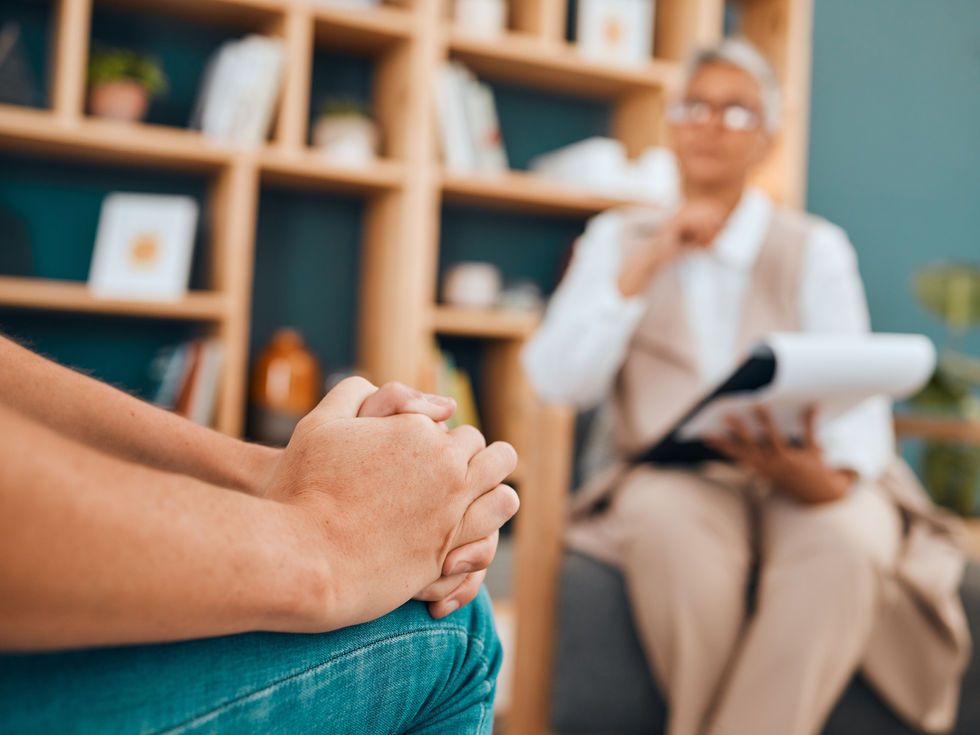Connection
- Jul 3, 2023
- 3 min read
Rebecca Ryder, MA, NCC, LPCC-S, Regional Program Director, Encompass East, shares 3 key tools that can help foster healing and connection.
In my work as a therapist, it is not uncommon for me to tell clients, “It’s my job to work myself out of a job.” That is the truth! This in no way is meant to minimize the work we can do together in a therapeutic setting, but the ultimate goal is for clients to explore and gain insight about what has brought them to my office and how they can be empowered to use that insight to heal and gain mental and emotional strength. One of the most important things that a client can utilize in their healing process is building a healthy support network of people who go way beyond the clinical office and help them to continue their growth – ultimately without the therapist.

Self-care is also an important tool and is a way for people to extend that support network to include themselves. I don’t know any therapist who does not explore the importance of self-care and self-compassion with their clients to help them find activities and routines that will aid their healing, replace choices that are doing more harm than good, and provide balance in their lives. Many people (not just clients) have little margin in their lives to implement self-care, have few resources, or even don’t feel like they deserve to take some time to care for themselves. However, creating space for things that give life, rest and care allows for mental, emotional, physical, and spiritual growth.
In addition to a healthy support system and healthy self-care, I can’t help but share a third practice that research is showing across cultures and world areas to be just as beneficial and often not as obvious when we are working so hard to subtract negative thoughts, unhelpful habits, and set healthy boundaries with people who may be a stumbling block to our progress. Serving others.
Did you know that taking the time to help someone else, meet a need for a friend or stranger, or give time to volunteer can boost your mood and take the focus off of what may be weighing you down or making you anxious? Of course, this isn’t a new idea, and often folks are burdened by time commitments that drain their energy. There is a place for exploring what is motivating those commitments and deciding how to restructure your schedules. However, what I am describing is the type of self-care that comes from actually focusing on ways to be part of someone else’s support network, even if it’s a one-time interaction, anonymous, or temporary.
You will have to pardon the pun, but the key connection between these 3 practices is CONNECTION - which is a need created in all of us by our God. We were built for connection! In building a strong support network, we are seeking connections from others. In building good self-care habits, we are seeking connection with ourselves and what makes us thrive. In serving other people, we are offering connection to others. There really is something to the old saying that “It is better to give rather than receive.” Helping others prevents us from totally focusing on ourselves and what we may need and opens the doors to relationships and community that fosters a reciprocal nurturing effect.
So, this summer, I encourage you to look for intentional ways you can add some service and connection to others into your planned or spontaneous schedules. If you have kids at home, invite them into the process and let them absorb how mutually beneficial it is to pay attention to and meet someone else’s needs! Help a neighbor weed their flower bed, help out with a summer event at your church, send a card to someone for no reason, make a small donation to a charity that you love, take some fresh flowers to an elderly person in your family or neighborhood, smile and speak to people when you pass them, offer to babysit for a worn-out parent, send an encouraging text, pray for someone every day for a week, stay in a conversation longer than just asking, “How are you?”
You might just find that focusing more on others diminishes the need to focus on your own pain and creates opportunities to be part of someone else’s story!







